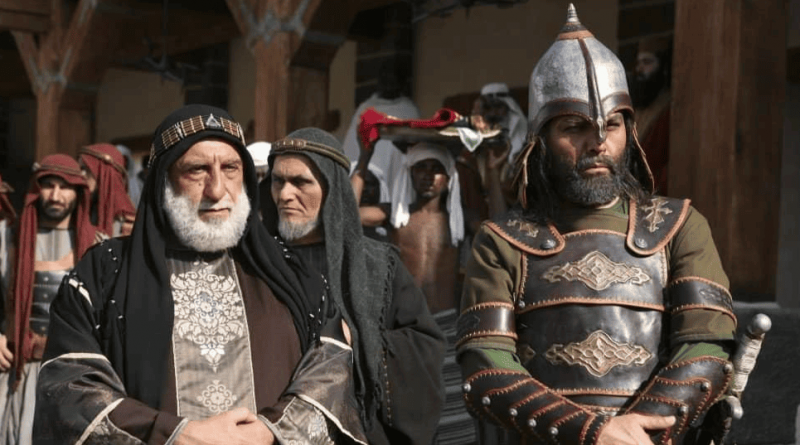When Propaganda Rewrites History: Jalal al-Din & al-Mukhtar
The rehabilitation of Jalal al-Din Mangburni and al-Mukhtar al-Thaqafi underscores the power of propaganda to convert villains
History is rarely a neutral record of past events. It is filtered and reshaped by political interests seeking legitimacy, mobilizing identity, or settling old grievances. In the Islamic world, this process is visible in the treatment of controversial figures whose legacies remain contested. Two telling examples are Jalal al-Din Mangburni (also rendered Mengübirni/Mangubirti), the last Khwarazmshah, and al-Mukhtar al-Thaqafi, the Kufan rebel who vowed to avenge Imam Husayn. Both men have been hailed as heroes by some and condemned by others. In our time, television drama has become a key vehicle for rehabilitating such figures. The Uzbek-Türkiye co-production about Jalal al-Din and the Iranian series Mokhtarnameh illustrate how selective storytelling can turn divisive actors into symbols of pride, unity, or sectarian triumph.
Jalal al-Din Mangburni: The Last Khwarazmshah
Jalal al-Din (d. 1231) ruled during the Mongol onslaught across Central Asia and Iran. He is often portrayed as the heroic last defender of the Khwarazmian realm, with chronicles memorializing his desperate flight across the Indus after a defeat by Chinggis Khan—an episode that has become iconic in art and popular history.
The fuller record is more complicated. After regrouping in Afghanistan and India, Jalal al-Din returned west and fought not only the Mongols but also multiple Muslim polities. Encyclopaedia Iranica notes his clashes “with the army of the resurgent Abbasid caliph al-Nasir,” his expulsion of the Atabeg of Azerbaijan from Tabriz in 1225, a devastating invasion of Georgia culminating in the sack of Tbilisi (1226), and prolonged fighting over Ahlat—then under Ayyubid control—followed by defeat at the hands of an Ayyubid–Seljuq coalition. These campaigns underscore that his quest for survival and sovereignty repeatedly came at the expense of neighboring Muslim (and Christian) territories.
Modern screen retellings smooth these rough edges. The historical drama Mendirman Jaloliddin (also known as Bozkır Arslanı Celaleddin)—a collaboration between producers in Uzbekistan and Türkiye—centers on Jalal al-Din’s valor and leadership against the Mongols and premiered on Milliy TV in Tashkent in February 2021, with releases in Türkiye later that year. Its publicity and coverage emphasize a shared Turkic heritage and cross-border cooperation in production, which dovetails with contemporary cultural diplomacy across the Turkic world.
The politics of emphasis and omission are evident: his ferocity toward fellow Muslims is downplayed, while his Turkic identity, battlefield courage, and anti-Mongol defiance are foregrounded. Framed this way, Jalal al-Din becomes a transnational emblem useful to present-day narratives of Turkic solidarity—an alignment of memory with current regional projects rather than a strictly balanced portrait of a thirteenth-century warlord. (That reframing is interpretive, but the production’s binational character and promotional language are matters of record.)
Al-Mukhtar al-Thaqafi: Rebel, Avenger, and the Disputed Claims
Al-Mukhtar b. Abi ʿUbayd al-Thaqafi (d. 687) emerged after the tragedy of Karbala (680), organizing a revolt in Kufa and targeting those implicated in Husayn’s killing—most famously defeating and killing ʿUbayd Allah b. Ziyad. In Shiʿi memory (especially Twelver tradition), he is celebrated as the avenger of Husayn’s blood and a champion of the Ahl al-Bayt.
Sunni-leaning chronicles portray him more darkly. A recurrent accusation in early sources is that al-Mukhtar trafficked in claims of supernormal sanction. Some reports allege that his circle propagated messages about angelic mediation (Gabriel) or that he styled himself the spokesman (wakīl) of Muḥammad b. al-Ḥanafiyya as al-Mahdī. These attributions are debated: the narrations vary in reliability, and Shiʿi scholarship has long contested both the authenticity and the interpretation of such claims, sometimes shifting the blame to associates like Abu ʿAmrah Kaysān for exaggerations. What is solidly attested across sources is al-Mukhtar’s mobilization in Kufa, his retributive campaign, and the violent end of his rule.
In the contemporary media sphere, Iranian state television’s Mokhtarnameh (directed by Davud Mirbaqeri, aired around 2010–11) rehabilitates him as a righteous revolutionary whose mission is justice for Karbala. Press coverage and film databases identify its IRIB provenance and its explicit framing as the story of the uprising to “take revenge against the killers of Imam Husayn.” The dramatization prizes moral clarity and devotional affect over the historiographical disputes, inviting identification with a purified, heroic Mukhtar.
Propaganda, Memory, and the Politics of Selection
These two cases show how modern propaganda (in a broad sense: state-aligned, identity-mobilizing storytelling) converts morally ambiguous figures into usable heroes. The mechanism is not fabrication so much as selection and framing:
Selection of episodes: Jalal al-Din’s daring at the Indus and victories like Parwan are highlighted; his ravaging of Muslim-ruled regions and failure to build coalitions get less airtime. Al-Mukhtar’s vengeance for Husayn is foregrounded; theological controversies are deflected or reinterpreted.
Affective packaging: High-production dramas embed historical claims in emotionally compelling arcs—love, betrayal, sacrifice—which audiences absorb as “history” because the narratives feel truthful.
Alignment with present politics: The Uzbek–Türkiye co-production supports a shared Turkic cultural space; the Iranian series advances a Shiʿi memory-politics that sacralizes revenge for Karbala as justice. (Those alignments are widely recognized in coverage and scholarship about cultural diplomacy and sectarian memory.)
The result is not only a reframed past but also a mobilized present. Jalal al-Din becomes a cipher for Turkic unity and resilience; al-Mukhtar becomes a shrine of televised piety and communal justice. Both identities are constructed through emphasis and omission that serve contemporary agendas more than historiographical balance.
To Sum
The rehabilitation of Jalal al-Din Mangburni and al-Mukhtar al-Thaqafi underscores the power of propaganda to convert villains—or, more precisely, morally entangled actors—into heroes when circumstances demand it. The corrective facts matter: Jalal al-Din fought Abbasid, Ayyubid, and other Muslim forces even as he resisted the Mongols; al-Mukhtar’s record includes both retributive justice for Karbala and contested claims reported (and disputed) in early sources. But in the arena of mass media, the selective story wins.
Television drama’s reach ensures that these curated identities become common sense for millions, embedded in popular culture under the guise of entertainment. The lesson is not to banish drama from history but to insist on critical literacy: to distinguish between affective truth and archival truth, between usable pasts and complex pasts. Only then can societies resist the easy alchemy by which propaganda turns ambiguity into certainty—and contentious men into uncomplicated heroes.


